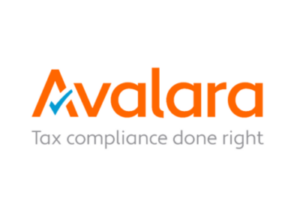SAP Accounting
Filter By
Browse By
- SAP Analytics and AI
- SAP Application Development and Integration
- All SAP Application Development and Integration
- SAP ABAP
- SAP ABAP Development Tools
- SAP ABAP Test Cockpit
- SAP API Management
- SAP BAPI
- SAP Basis
- SAP BRF
- SAP Business Application Studio
- SAP CMS
- SAP Design Studio
- SAP Development Tools
- SAP DevOps
- SAP EAI
- SAP EDI
- SAP Extension Suite
- SAP Fiori
- SAP Fiori Elements
- SAP Integration Suite
- SAP Low Code Application Development
- SAP Low Code Automation
- SAP Netweaver
- SAP Release Management
- SAP UI5
- SAP Web Application Server
- SAP Web IDE
- SAP Business Process Management
- SAP Center of Excellence
- SAP CIO
- SAP Customer Experience
- SAP Data and Data Management
- All SAP Data and Data Management
- SAP BW
- SAP BW/4HANA
- SAP Crystal Reports
- SAP Data Archiving
- SAP Data Center
- SAP Data Governance
- SAP Data Integration
- SAP Data Migration
- SAP Data Quality
- SAP Data Services
- SAP Data Strategy
- SAP Data Visualization
- SAP Data Warehouse Cloud
- SAP DMS
- SAP Document Control
- SAP EIM
- SAP ETL
- SAP ETL Tools
- SAP HANA
- SAP HANA Administration
- SAP HANA Deployment Infrastructure
- SAP HANA Studio
- SAP Master Data
- SAP Master Data Governance
- SAP MDM
- SAP Enterprise Architect
- SAP Enterprise Asset Management
- SAP ERP
- SAP Finance
- All SAP Finance
- SAP Accounting
- SAP AR AP
- SAP Asset Accounting
- SAP Billing Systems
- SAP BPC
- SAP BRIM
- SAP Cash Management
- SAP Central Finance
- SAP Controlling
- SAP COPA
- SAP Cost Center Accounting
- SAP Currency Risk
- SAP e-invoicing
- SAP FICO
- SAP Finance Automation
- SAP Advanced Financial Closing
- SAP Financial Consolidation
- SAP Financial Planning
- SAP FX Risk
- SAP General Ledger
- SAP Global Tax Management
- SAP Hyperion
- SAP Order to Cash
- SAP Payment Processing
- SAP Profitability Analysis
- SAP Rebate Management
- SAP S/4HANA Finance
- SAP SWIFT Compliance
- SAP Treasury Management
- SAP Universal Journal
- SAP Governance Risk and Compliance
- SAP Human Capital Management
- SAP Intelligent Technologies
- SAP Platform and Technology
- All SAP Platform and Technology
- SAP Business Technology Platform
- SAP Cloud
- SAP Cloud Connector
- SAP Cloud Integration Platform
- SAP Cloud Migration
- SAP Cloud Platform
- SAP Cloud Providers
- SAP Cloud Strategy
- SAP Digital Signature
- SAP Container Platform
- SAP HANA Enterprise Cloud
- SAP Digital Asset Management
- SAP Smart Forms
- SAP HEC
- SAP Digital Integration Hub
- SAP Hyperscalers
- SAP Infrastructure
- SAP Messaging
- SAP Quality and Testing
- SAP Security
- SAP Spend Management
- SAP Supply Chain Management
- All SAP Supply Chain Management
- SAP APO
- SAP Asset Management
- SAP Business Network
- SAP Digital Manufacturing Cloud
- SAP Digital Twin
- SAP EWM
- SAP IBP
- SAP Inventory Management
- SAP Label Printing
- SAP Logistics
- SAP Manufacturing
- SAP Manufacturing Automation
- SAP MES
- SAP MII
- SAP MM
- SAP MRO
- SAP MRP
- SAP Order Management
- SAP Plant Maintenance
- SAP PLM
- SAP Production Planning
- SAP S&OP
- SAP SD
- SAP SPM
- SAP Supply Chain Planning
- SAP Track and Trace
- SAP Transportation Management
- SAP System Administration
SAP Accounting: An overview and key considerations
What Is SAP Accounting?
SAP Accounting consists of two core modules that represent separate accounting books. SAP customers utilize SAP Financial Accounting (FI) for external reporting with financial statements and SAP Controlling (CO) for internal reporting purposes.
SAP Accounting enables organizations to deliver financial performance information necessary for effective decision-making by consolidating data from functional modules with powerful reporting tools. It is critical to ensure all aspects of an organization’s financials are integrated in a way that makes it easier for finance and accounting managers to access the information they need when they need it. SAP accounting modules are designed to make managing and reporting accounting data easier across organizations, teams, and roles, to support the generation of income statements, balance sheets, and cash flow statements.
For many organizations, SAP Accounting manages transactions across these core financial functions:
- Accounts payable/accounts receivable
- Bank accounting
- Cash journal
- Financial close
- Financial statements
- Fixed asset accounting
- General ledger
- Inventory
- Master data governance
- Multiple charts of accounts and parallel valuations
- Tax accounting.
Key Considerations for SAPinsiders
SAP Accounting: An overview and key considerations
What Is SAP Accounting?
SAP Accounting consists of two core modules that represent separate accounting books. SAP customers utilize SAP Financial Accounting (FI) for external reporting with financial statements and SAP Controlling (CO) for internal reporting purposes.
SAP Accounting enables organizations to deliver financial performance information necessary for effective decision-making by consolidating data from functional modules with powerful reporting tools. It is critical to ensure all aspects of an organization’s financials are integrated in a way that makes it easier for finance and accounting managers to access the information they need when they need it. SAP accounting modules are designed to make managing and reporting accounting data easier across organizations, teams, and roles, to support the generation of income statements, balance sheets, and cash flow statements.
For many organizations, SAP Accounting manages transactions across these core financial functions:
- Accounts payable/accounts receivable
- Bank accounting
- Cash journal
- Financial close
- Financial statements
- Fixed asset accounting
- General ledger
- Inventory
- Master data governance
- Multiple charts of accounts and parallel valuations
- Tax accounting.
Key Considerations for SAPinsiders
Prioritize industry-specific and business process-related compliance needs across accounting and finance requirements. SAP Accounting is an essential component of SAP ERP that provides organizations with global processes and information to account for the new standards of accounting, while maintaining flexibility to incorporate regulatory updates. SAP Accounting solutions can help organizations effectively meet global accounting and financial reporting standards to enforce compliance.
Consider opportunities to modernize accounting workstreams and provide operational visibility across virtual teams.The transition to a fully remote working environment has caused difficulties for accounting professionals, particularly as it relates to their dependence on spreadsheets, inability to access data, limited process documentation, and daily manually intensive tasks. Organizations can automate their workflows with SAP Accounting tools, freeing them to do more optimization and customization.
Leverage SAP Accounting products to enable accounting teams to do more with less. COVID-19 variants, virtual work, supply chain disruptions, inflation concerns, and the Great Resignation, represent some of the major challenges creating uncertainty for organizations across the current operating environment. With the uncertainty of this economy, accounting is required to give more up-to-date information to make smarter decisions in real time.
499 results
-

 Premium
Premium
Optimal Use of the Travel Advance Feature in SAP Travel Management
Reading time: 9 mins
Traveling is an indispensable part of any organization and it is important to handle the travel process accurately, with speed and convenience. During the travel cycle, organizations often provide an advance to employees for meeting travel expenses. This advance should be recorded and adjusted properly in the travel management process to avoid any excess payments....…
-

Live from SAPinsider Studio: Rohana Gunawardena on SAP CO
Rohana Gunawardena, Director, SAP Practice, QS&S, joins SAPinsider Studio at the SAPinsider FIN 2016 event in Las Vegas to discuss the SAP CO philosophy and using CO beyond cost center accounting, such as internal orders, as well as what SAP S/4HANA means for SAP CO. This is an edited version of the transcript: Ken Murphy,...…
-

Gain Control of Your IT Environment: Q&A on Navigating the Controlling Options of Your SAP System
Reading time: 13 mins
There are more than a dozen controlling options available in the SAP system. Determining how to best interpret those options depending on how your organization stores data and handles reporting and training requirements can be a challenge. Financials 2016 speaker Rohana Gunawardena recently took readers’ questions on how to choose the most optimal solution to...…
-
-

Integrating SAP Payroll with Accounting (FI/CO) and Benefits
Reading time: 9 mins
Thank you for registering for this live Q&A on automating and integrating SAP Payroll with finance (FI/CO) and benefits. Please find the transcript below. Sue Dainis: Hello and welcome to today’s live Q&A, “Integrating SAP Payroll with Accounting (FI/CO) and Benefits.” We’re looking forward to a lively discussion. Thanks to everyone who has submitted their...…
-

- SAP Financial Consolidation
 Premium
Premium
Under Armour Gears Up for an Automated Financial Close
Reading time: 10 mins
As a global company tracking unprecedented growth, Under Armour needed to leave behind its manual approach to account reconciliations and journal entries. The company sought a web-based platform that would make the process more efficient and minimize risk. Delve into how software from BlackLine automated Under Armour’s financial processes and allowed employees to step away…
-

Leverage the Benefits of Finance Shared Services with Central Payments Functionality
Reading time: 10 mins
In my blog titled “Accelerate Your Finance Shared Services Transformation and Centralized Reporting,” I provided a quick overview of the innovations included in SAP S/4HANA 1709. In this blog, I provide a detailed view of the Central Payments functionality introduced with SAP S/4HANA 1709. This functionality is a key enabler for a central execution of…
-

- SAP Finance
 Premium
Premium
A “No Regrets” Approach to Financial Transformation
Reading time: 5 mins
As businesses look to the future and modernize their practices, digital transformation has become a top priority. Although IT and the business team often take center stage in digital transformation initiatives, finance and accounting teams and processes can play a critical role in delivering success. Digital transformation, like a move to SAP S/4HANA, for example,…
-
-

How SAP New GL Streamlines Financial Processes and Reporting
Reading time: 8 mins
eCommerce has been evolving quite rapidly since COVID-19 happened. Since then the customer viewpoint has shifted massively and it’s become a lot more important for businesses to be able to optimize their reporting processes.
-

Understanding the Future of Accounting in SAP with BlackLine
Reading time: 2 mins
Organizations looking to optimize accounting functions must adopt new technological strategies, particularly AI, while balancing speed with accuracy and compliance, as discussed by SAP’s Chief Accounting Officer Dr. Christopher Sessar at BlackLine’s Beyond the Black event.
-

 Premium
Premium
Effectively Control and Monitor the Purchase Price Variance
Reading time: 14 mins
When a product is procured from multiple vendors, there is often a variance between the actual purchase price and the standard. This variance in purchase price should be recorded, analyzed, and monitored in detail for improved cost control. Understand how to capture the variance in the standard and actual purchase price in the SAP system....…
Become a Member
Unlimited access to thousands of resources for SAP-specific expertise that can only be found here.
Become a Partner
Access exclusive SAP insights, expert marketing strategies, and high-value services including research reports, webinars, and buyers' guides, all designed to boost your campaign ROI by up to 50% within the SAP ecosystem.
Upcoming Events
Related Vendors
Your request has been successfully sent


